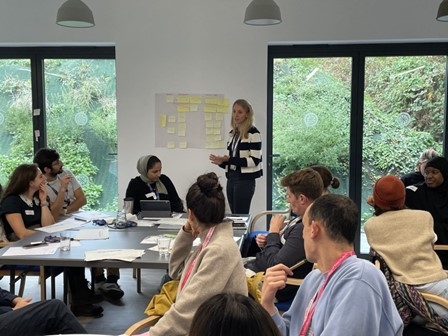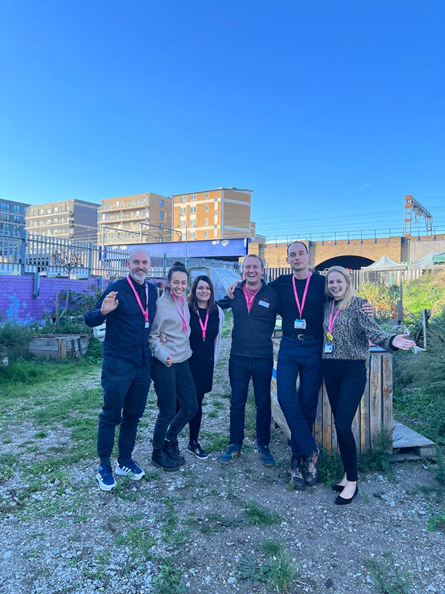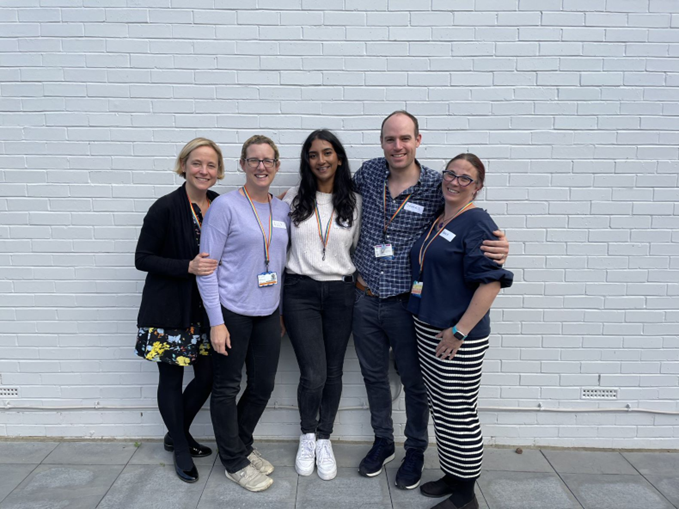Royal London Hospital Lighting the CANDLE for Quality Improvement
The new RCoA 2021 Curriculum raises the bar on the requirements for Quality Improvement (QI) delivery and teaching. In response to trainee and trainer surveys that questioned experience and knowledge in QI, the Royal London Hospital, part of Barts Health NHS Trust, developed the CANDLE (Curriculum and Delivery Learning Event) Programme.
Here Drs Lydia Fletcher, an anaesthetics registrar, and Annie Hunningher, a consultant anaesthetist, provide an overview of the programme.
Our surveys highlighted low levels of formal QI knowledge and the inability to apply current training to on-the-floor projects. Frustration was expressed towards frequent, small-scale and low impact projects. Over 95% of trainees felt that a high proportion of their QI work had no lasting effect. Many were simply undertaking projects as a requirement of annual appraisal. QI was not part of many trainers own training and despite some attending external courses, they described an ongoing lack of understanding, difficulty in applying methodology and low confidence in teaching QI.
In September 2022, we piloted our new QI training concept by forming seven teams from across the Barts Health Group, each with a trainee proposed project or concept, team name and song!
Who was in each team?
Three to four stage 1,2,3 trainees (combination to allow appropriate stage-related role)
One QI coach mentor
One to two consultants (supervising education and learning QI)
What were the projects?
| Team Name | Project Type | Explanation of Project |
|---|---|---|
| Code Green | Ecological | Operation Shutdown – reducing energy use in theatres at night |
| The Whitechapel Dreamers | Perioperative | Preoperative fasting + Drinking, Eating and Mobilising (DrEaM) after surgery |
| The Dons | Perioperative | Improving the quality of debriefs |
| The Rainbows | Perioperative | Improving the team brief |
| Team Whippets | Perioperative | Preoperative fasting and patient education |
| AIMS-HIGH | Obstetrics | Assessing and improving maternal safety in high BMI patients |
| New(er)ham Kids On The Block | Obstetrics | Improving obstetric block testing |
What was the course model?
- Team preparation to choose a project
- Pre-course information outlining curriculum requirements/trainee roles
- Training and Project Initiation Day comprising a series of QI talks interspersed with hands-on workshops, tailored to the curriculum
- Course delivered by expert coaches, many from the Barts Health Improvement Team or consultant anaesthetists who had previously undertaken QI fellowships or coaching courses
- Aspects covered included building engagement, understanding your system and the model for improvement
- Newly learned QI methodology and tools were immediately applied to the set-up of the real-life projects in coach-supported workshop sessions on the day
- QI toolbox for ongoing reference post-course
- Two follow-up sessions with the team QI coach
- Celebration event for project presentation planned for January 2023
The training and project set-up day was delivered for the first time on Wednesday 28th September 2022. Feedback was extremely positive. Many commented upon how engaging and useful the process was, breaking the teaching to apply training to their own project.

Feedback and learning from the event
“The most useful thing about the course was being given time to go through QI methodology with immediate practical application to projects we are passionate about.”
Team members gained confidence in using QI tools and felt better prepared to conduct well-structured projects and work collaboratively. The benefits of having an improvement coach were remarked upon multiple times and inspired many.
“The fact that improvement advisors, enthusiastic consultant supervisors and trainees were all mixed within the groups [was one of the most useful aspects of the course]. There was a wealth of experience and technical knowledge available.”
In comparison to other courses, feedback suggested this training was more relevant and motivating for clinicians trying to undertake QI.
"This was head and shoulders above [other courses], easily."
Several attendees wished the course could be extended, with more time for project development. In future, we will encourage teams to meet for a pre-course project preparation session, ensuring that time on the training day is used as effectively as possible. Given the need for multiple stakeholder engagement in successful QI, we hope to extend the course to the wider multi-disciplinary team including perioperative managers.
Coaches will provide ongoing support to our project teams and initial results will be presented at our celebration event allowing the work to be shared with trust and School of Anaesthesia leaders, with the hope of securing resource to sustain this form of delivery.
Trainees completing the programme will be expected to have achieved the stage-relevant QI curriculum competencies, with sign-off guided by consultant supervisors. Consultants that attended without formal QI knowledge will have achieved the equivalent to the trust course ‘First Steps in QI’. We hope to repeat the programme next year and that this model will become embedded in future training for anaesthesia and other specialties.
If you have any questions about this event or would be interested in sharing learning, please get in touch with qualityimprovement@rcoa.ac.uk and the College's QI Team can put you in touch with Lydia and Annie.


